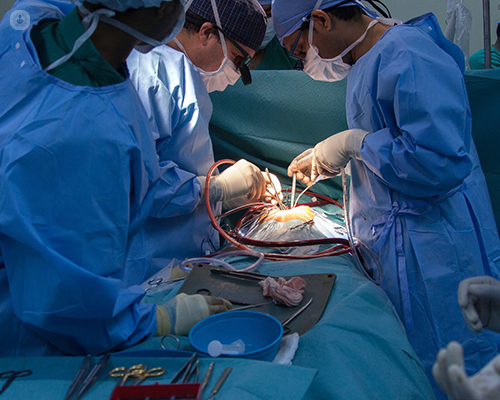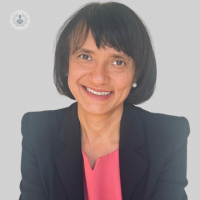Gallstones and their treatment: everything you need to know
Written by:Gallstones, while often extremely painful, are a very treatable condition. In her latest article, leading consultant bariatric surgeon Mrs Kalpana Devalia offers her expert insight into this condition, including the causes, diagnosis and treatment.

What are gallstones?
Gallstones are small, hard deposits of calcium, cholesterol or bile pigments that form in the gallbladder. Gallstones can range in size from a tiny grain of sand to a golf ball.
What are the symptoms of gallstones?
The majority of people with gallstones do not have any symptoms, but if a gallstone gets lodged in a duct (a tube that transports bile from the liver to the small intestine), it may result in symptoms including fever, nausea, and vomiting.

How are gallstones diagnosed?
A medical history, physical examination, and diagnostic testing such as blood tests, ultrasounds, and CT scans are typically used to identify gallstones.
How are gallstones treated?
There are two main ways in which gallstones can be treated:
- Medication to dissolve the stones
- Cholecystectomy (surgery to remove the stones)
The precise course of action will be determined based on the size and quantity of stones. The patient’s symptoms and general health are also taken into account. Treatment may not be necessary if the stones are not causing any symptoms.
Can gallstones be treated without surgery?
Yes, in some cases gallstones can be managed with medication or dietary changes.

Why do you get gallstoness?
Bile is the fluid held in our gallbladder that is then discharged into the small intestine to aid in fat breakdown. If this fluid has an unbalanced chemical composition, containing an excessive amount of cholesterol or bilirubin, gallstones may form.
There are several risk factors that can raise a person’s likelihood of acquiring gallstones, including:
- Being female
- Being overweight or obese
- Being over the age of 60
- Having a family history of gallstones
- Having diabetes
- Having a diet high in fat and cholesterol
- Rapid weight loss
- Pregnancy
- Taking certain medications (such as birth control pills or hormone replacement therapy)
How long is the recovery time after gallbladder surgery?
Following gallbladder removal, patients usually take a few weeks to recover.
Are there any risks associated with gallbladder surgery?
The risks of gallbladder removal surgery include:
- Bleeding
- Infection
- Harm to nearby organs
Additionally, it’s possible that not every gallstone will be removed by the surgery.
Mrs Kalpana Devalia is a leading London-based consultant bariatric surgeon, with more than 10 years of experience. If you would like to book a consultation with Mrs Devalia, you can do so today via her Top Doctors profile.


